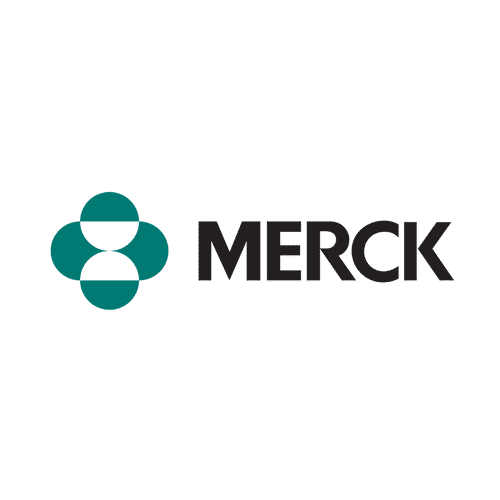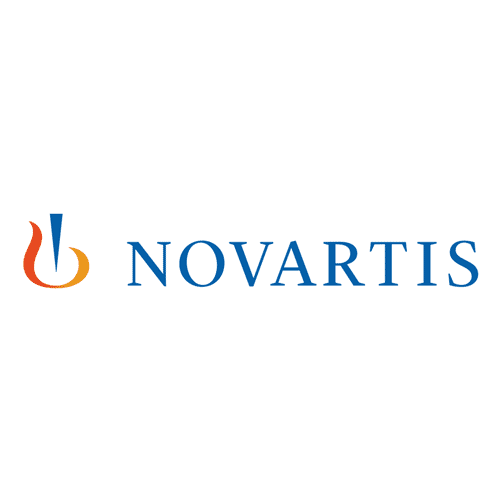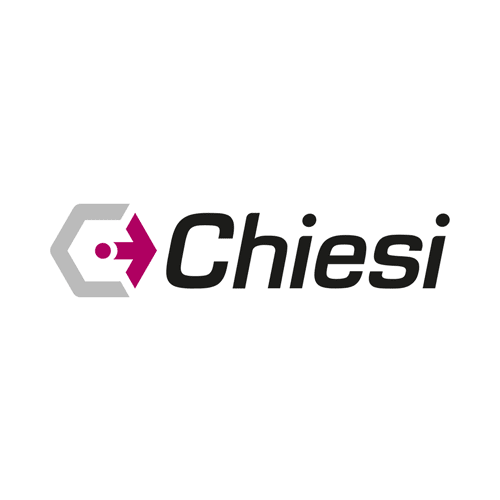
Patient centricity

Engage more patients throughout the lifecycle of your products
Our specialized team brings its expertise on patient centricity to healthcare players and supports them in defining their global patient-centric approaches and in realizing their projects related to this theme.
They trust us









The challenges related to patient centricity
For healthcare companies, patient centricity brings together issues affecting various stages of a product’s life cycle (innovation, clinical trials, development, patient journey, compliance, etc.) and many functions (R&D, medical, communication, marketing, etc.). This global concept has shaken up the traditional model and constitutes a real challenge for companies in the pharma industry.
Among the key issues of patient centricity, we find in particular:
Patient empowerment
With the evolution of information technologies and the emergence of social networks, the relationship of patients to their health has been disrupted. Thanks to numerous and accessible sources of information, we have seen the emergence of increasingly “expert” patients, with a great knowledge of their pathology, their treatments, their management, etc. Patients are therefore better informed, and actors in their own therapeutic education, but they are also more listened to, in particular because of the omnipresence of social networks on which they can express themselves.
In this context, the credibility and legitimacy granted between patients to the comments of their “peers” is very strong, although sometimes biased and without expertise, or even totally false. The insights shared and their level of influence must be monitored to avoid any potentially harmful drift for other patients.
For companies in the pharma industry, taking into account and integrating this “patient power” into their approach is a major challenge, whether in terms of exchanges with patient associations or even therapeutic education.
In a more indirect way, social listening, allowing to monitor social networks, is a very powerful tool that must be exploited to understand and follow opinions and trends among patients.
How to secure patient information sources? How to promote positive and helpful testimonials for the entire patient community? How to collect the patient’s voice to improve patient care?
Building a collaborative relationship
The patient-centered concept aims to include the patient in the steps related to it, such as the innovation strategy, clinical research and the optimization of a care pathway. Placing the patient as a partner from this early stage both establishes a relationship of trust and ensures that patient-centered care is achieved.
This relationship also makes it possible to ensure close monitoring of essential parameters such as the effectiveness of the treatment, its ease of use for patients, the management of side effects, etc. In this context, it is essential to think about tomorrow’s innovations such as connected health devices, in a patient-centric approach, so as to achieve a result that is easy to use for the patient and that meets their needs.
How to include patients from the early stages of drug development? How to adapt to their expectations and where to focus between the effectiveness of the treatment and the acceptability of its implementation?
Personalization of care
The personalization of care is a fundamental aspect of the concept: it allows care that is adapted to the specificities of each patient. This development is made possible by the rise of digital tools, particularly around health data and their analysis (shared medical records, predictive analyses, etc.). This approach to personalization of care is part of patient centricity, since it is built around the patient and their journey, in order to have a more detailed analysis of their needs.
How to establish a relationship of trust with patients, and lead to personalized products and services co-constructed with them? How to support the personalization of care pathways, in particular via the possibilities of big data, and for what added value?
The management and relevant use of patient data, and health information in general, is an important issue for healthcare professionals (HCPs), companies and patients alike. The digitization of health data and the use of connected devices are essential areas to be developed, in which the involvement of patients, and therefore the co-construction of tools, is a major challenge in order to achieve the implementation of solutions. effective and relevant to the patient, whether in terms of ease of use, cybersecurity, etc.
The development of digital tools for therapeutic education, such as e-learning modules, is also an important issue for the empowerment and autonomy of patients.
This is a subject of growing interest for patients and therefore a major challenge for companies in the pharma industry, in the era of digital medicine and mobile medical monitoring applications.
How to develop digital services that meet patient expectations, and allow sufficient access, monitoring and data security? When and how to involve patients in the design and deployment of these tools, and on what aspects should they be involved?
The paradigm shift brought about by the advent of patient centricity, with the integration of patient centric approaches into the strategy of healthcare players, implies a transformation of the processes in place: innovation processes and clinical trials are good examples.
Integrating the patient into innovation processes
The patient-centric concept must be integrated from the early stages of development, in order to listen to and understand the needs of patients, to anticipate all the impacts of products and services on their lives and on their quality of life. Patient centricity therefore requires involving the patient in the innovation process, to guide the development and implementation of solutions, and lead to acclaimed and useful solutions. This integration of patients upstream of product development is a major challenge for the pharma industry, and requires an overhaul of traditional innovation processes.
When is the right time to include patients? How to reach and mobilize them? Is there an associated regulatory framework? What are the trade-offs to incorporate patient voices?
An evolution towards the clinical trials of tomorrow
New patient-centered technologies such as digital health records can facilitate the recruitment, follow-up and retention of patients included in clinical trials, in particular living far from centers, and therefore have a positive impact on the quality of therapies and drugs that are being evaluated. The use of these technologies also results in major transformations for clinical trials, whether in terms of recruitment, scope, collection or analysis of data.
How to reorganize and optimize processes to fully integrate them into the overall strategy of a patient-centric concept? How to ensure that these digital tools are also designed to take into account the voice of patients, on all aspects of treatment?
From the strategic reorientation that is patient centricity stems a change of mindset that must be cultivated within healthcare companies. Developing a strong patient-centric culture in all spheres of their business is therefore an important issue for pharma laboratories and medical device suppliers. For this, it is necessary to demonstrate and support the value provided by the concept, both for the patient as well as for HCPs and companies in the pharma industry.
Patient-centric communication, for example, is an important issue, and must adapt to reflect this new state of mind: the personalization of communication and the construction of a collaborative relationship are among the topics to be highlighted.
How to reorganize and optimize processes to fully integrate them into the overall strategy of a patient-centric concept? How to ensure that these digital tools are also designed to take into account the voice of patients, on all aspects of treatment?
How we support you in your projects related to patient centricity
Alcimed accompanies many players in the healthcare market in their approaches around patient centricity. The diversity of our clients (companies in the pharma industry, medical devices, diagnostic, biotechs, etc.), the geographical fields we explore, and the types of projects we develop, give us global in-depth understanding of the challenges covered in patient-centric approaches.
Our projects cover topics as diverse as understanding patient needs and social listening, patient experience, integrating expert patients into innovation processes, market analysis for the development of digital healthcare offers, patient-centered communication, creation of new offers and services, development of positioning strategies, etc.
What they say


"The Alcimed team has allowed us to structure the project appropriately, to plan it in the best possible way, and to make sure that every single step of the project was successful."
Federico Bianco
Head of the Special Care Unit
Examples of recent projects carried out for our clients in patient centricity
Support for a player in the pharma industry to develop the commitment of expert patients in the development process of its drugs
One of our clients, a major laboratory in the pharma industry, wanted to improve its innovation process by developing a patient-centered concept.
To support it in this approach, Alcimed worked on the involvement of expert patients in the drug development process for our client. We first studied the integration of expert patients with the key functions of the company, and the roles involved in the innovation process. We then assessed the company’s pipeline in order to identify the advantages of a “well-balanced” deployment, leading to a rapid and efficient deployment of the new mode of organization. Finally, we developed tools to facilitate the deployment and monitoring of the performance of the actions implemented, in particular an interactive digital module to train the entire company in the process, the definition and monitoring of performance indicators, and communication materials.
The expert patient engagement program is now fully integrated into the business and has resulted in more than 26 expert patient engagements, and continues to expand.
Advising a player in the pharma industry for the development of a patient-centered offer
In order to help one of our clients in its patient-centric approach by creating new solutions, Alcimed first carried out an analysis of current practices in the care of patients in hepatology & gastroenterology: patient journey, practices, decision criteria for prescribing, identification of sources of information for HCPs, highlighting of specificities by profile of healthcare professionals, etc.
Then, our team identified and prioritized the needs and expectations in this context, in order to identify potential offers to develop for our client. Finally, we carried out a screening of potential offers as well as an evaluation of the solutions in terms of receptivity and differentiation, to develop a prioritization of the solutions to be targeted.
For our client, this study led to a revised segmentation of prescribers with additional arguments on the needs and expectations to be targeted, as well as clearer strategic and tactical orientations to strengthen their patient-centered positioning, with solutions identified and prioritized for the next steps.
Defining and implementing the positioning strategy of a drug against diabetes in Europe with a patient-centric approach
Patient centricity is increasingly integrated into the overall strategy of our clients in healthcare. In this context, our team supported a pharma laboratory which wanted to define the positioning of its treatment against diabetes, based on the new results of clinical trials of its product and the offers of the competition.
To do this, we first carried out a market study that gave our client a clear understanding of the local healthcare system in the target countries. Following this study, we were able to recommend the best positioning scenario applicable to the targeted European countries, while integrating into a patient-centric approach. Ultimately, we were able to offer our client a new patient-centered model and formalized alternative positioning scenarios for their treatment.
Analyzing the patient-centric communication of competitors of a pharma industry player to refine its communication strategy
The patient-centric concept is a strong argument with patients, and therefore a strategic axis of communication for healthcare companies. In this context, Alcimed carried out for a client in the pharma industry an analysis of the communication strategy of competitors in rheumatoid arthritis concerning emotional attachment, scientific communication, patient-centered formulation, etc.
The documentary research and the analysis of advertisements, scientific conferences, or even the websites of competing companies allowed our client to better understand their communication strategy, particularly regarding communication around patient centricity, and to adapt its own strategy.
Integration of patient voice at the heart of the development of a new prostate cancer treatment for a pharma company
Alcimed helped a major player in the pharma industry integrate the voice of prostate cancer patients at the heart of its development of new offers.
To achieve this, our team began by analyzing current patient practices, in order to understand unmet needs and common problems, as well as the strengths of existing solutions on the market. Following this phase of interviews with patients, workshops based on the “design thinking” methodology were conducted in collaboration with our customer.
Thanks to a methodological approach directly involving patients, our study enabled our customer to imagine and prototype innovations that were as close as possible to market needs.
Organization and moderation of several patient focus groups for a medical device manufacturer
Alcimed worked with a leading medical device company that wanted to incorporate patients’ views into the development of a new product.
Our team organized focus groups in 3 countries located in Europe, the United States and Asia, bringing together around ten patients to gather their opinions on an innovation being developed by our customer. Observation of the device’s handling and use, as well as capturing feedback from future users, helped clarify patients’ expectations and highlight potential difficulties in use that had not yet been identified.
Consolidation and analysis of the feedback obtained during the exchanges enabled our team to make a recommendation to our customer as to the next steps in its development.
Creation of the patient centricity strategy of a pharma company
Our client, a Top 10 biopharmaceutical company realized that its ambition of patient centricity had translated into cultural change within the company but did not yet consistently materialized into day-to-day operations.
Our team worked with internal stakeholders in all functions involved in the product development and commercialization, from early R&D to life cycle management to identify gaps and opportunities.
We then created a process through a series of cross-functional workshops, aiming at defining how should patient centricity take place in all operations daily. Prior to validate and implement this new process, our team vetted it with patient advocates.
You have a project?
To go further
Healthcare
Patient experience: what are the 3 new roles for patients in our healthcare system?
The consumer-patient: to be informed and to choose Patients, who are increasingly informed through various sources of information, notably digital sources, are becoming more involved in the ...
Healthcare
Flexible care: what are its key success factors and its impact on patients’ quality of life?
What is flexible care? What is its impact on patient’s quality of life? What are the key success factors for its implementation?
Healthcare
The tracer methodology: a way of integrating the patient’s voice to optimize care pathways!
What is the tracer methodology? What is the interest for healthcare professionals and manufacturers? Alcimed deciphers this method for you.
Founded in 1993, Alcimed is an innovation and new business consulting firm, specializing in innovation driven sectors: life sciences (healthcare, biotech, agrifood), energy, environment, mobility, chemicals, materials, cosmetics, aeronautics, space and defence.
Our purpose? Helping both private and public decision-makers explore and develop their uncharted territories: new technologies, new offers, new geographies, possible futures, and new ways to innovate.
Located across eight offices around the world (France, Europe, Singapore and the United States), our team is made up of 220 highly-qualified, multicultural and passionate explorers, with a blended science/technology and business culture.
Our dream? To build a team of 1,000 explorers, to design tomorrow’s world hand in hand with our clients.
Patient centricity is a global approach bringing together several dimensions. Nevertheless, the essential principle is to position the patient at the heart of the concerns of healthcare players (pharma companies,…), to anticipate and better meet their needs by considering them as a partner, and no longer a spectator, from the development stage of the products that will concern said patient. The main objective of patient-centric approaches is thus to make the patient the actor of his or her own health, while promoting continuity of care and fluid management.
Patient-centric approaches enable healthcare professionals to better integrate patients’ needs and expectations, and thus promote personalized care. This has a number of benefits, including increased adherence to treatment, fewer medication errors and a general improvement in quality of life, leading to better overall clinical outcomes.




